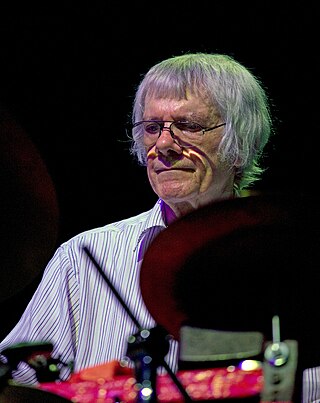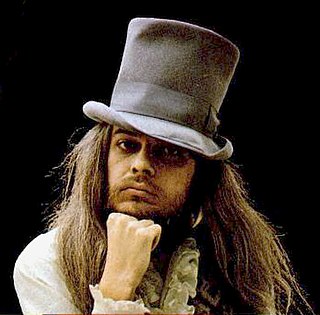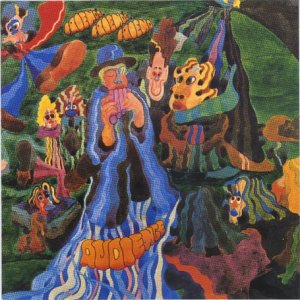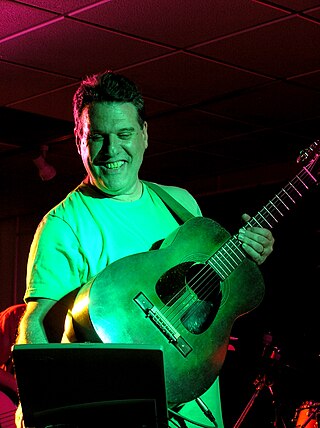
Yes are an English progressive rock band formed in London in 1968 by lead singer Jon Anderson, bassist Chris Squire, guitarist Peter Banks, keyboardist Tony Kaye, and drummer Bill Bruford. The band has undergone numerous lineup changes throughout their history, during which 20 musicians have been full-time members. Since February 2023, the band has consisted of guitarist Steve Howe, keyboardist Geoff Downes, bassist Billy Sherwood, singer Jon Davison, and drummer Jay Schellen. Yes have explored several musical styles over the years and are most notably regarded as progressive rock pioneers.

Trevor Charles Horn is an English record producer and musician. His influence on pop and electronic music in the 1980s was such that he has been called "the man who invented the eighties".

Tony Oxley was an English free improvising drummer and electronic musician.

Leon Russell was an American musician and songwriter who was involved with numerous bestselling records during his 60-year career that spanned multiple genres, including rock and roll, country, gospel, bluegrass, rhythm and blues, southern rock, blues rock, folk, surf and the Tulsa sound. His recordings earned six gold records and he received two Grammy Awards from seven nominations. In 2011, he was inducted into both the Rock and Roll Hall of Fame and the Songwriters Hall of Fame.
"Long Black Veil" is a 1959 country ballad, written by Danny Dill and Marijohn Wilkin and originally recorded by Lefty Frizzell.

James Dee Crowe was an American banjo player and bluegrass band leader. He first became known during his four-year stint with Jimmy Martin in the 1950s. Crowe led the bluegrass group New South from 1971 until his death in 2021.

Bad Boys Blue are a German pop group formed in Cologne in 1984. The group performed many international hits including "You're a Woman", "Pretty Young Girl", "I Wanna Hear Your Heartbeat", and "Come Back and Stay".
Audience was a cult British art rock band which existed from 1969 until 1972 and then from 2004 until 2013.

Family Entertainment is the second album by the British progressive rock band Family, released in March 1969. The cover of the album was a takeoff from the sleeve of the Doors' second album, Strange Days, as Family admitted.

"Please Send Me Someone to Love" is a blues ballad, written and recorded by American blues and soul singer Percy Mayfield in 1950, for Art Rupe's Specialty Records. It was on the Billboard's R&B chart for 27 weeks and reached the number-one position for two weeks; it was Mayfield's most successful song.

Trevor Williams is a bass guitarist, vocalist and lyricist known primarily for his work with Audience, British art rock band which ran from 1969 to 1972 and from 2004 -2013.
Alan Tarney is an English record producer and musician. He was born in Northside, Workington, Cumberland, but spent his teenage years in Adelaide, Australia, where he met his songwriting and musical partner Trevor Spencer. He is best known for his association with Cliff Richard and producing "Take On Me" by a-ha.

Alive & Kickin' & Screamin' & Shoutin' is a live album released in 2005 by the 1970s art rock band Audience. It was the first album following the band's break-up in 1972. It includes three original members of the band, Howard Werth, Keith Gemmell and Trevor Williams, with the new drummer John Fisher in place of Tony Connor.

2 Ozs of Plastic with a Hole in the Middle is the second studio album by the Welsh rock band Man and was released in September 1969.

Revelation is the debut studio album by the Welsh rock band Man and was released in January 1969. It was noted for the simulated orgasm on "Erotica", which received a UK ban.

Lunch is the fourth album by the British art rock band Audience, released in 1972. It was their last original release following the departure of Keith Gemmell and the band's breaking up for more than 30 years. It peaked at 175 on the Billboard 200 chart.

The House on the Hill is the third album by the British art rock band Audience, released in 1971. At about the same time, a single, "Indian Summer", reached number 74 on the Billboard Hot 100;. The North American version of the album on Elektra Records added "Indian Summer" as the opening track, along with "It Brings A Tear" which had already appeared on the UK album Friend's Friend's Friend. The Elektra LP dropped the song "Eye To Eye".

Friend's Friend's Friend is the second album by the British art rock band Audience, released in 1970. It was originally intended to be produced by Shel Talmy; however, the band didn't warm to his approach and they opted to produce it themselves.

Howard Werth is an English singer, guitarist and record producer. He was the founder and frontman of the cult British art rock band Audience from 1967 to 1972, and 2004 to date.
President Records is a British independent record label. It is one of the oldest independent record companies in the UK, originally launched in 1957 by Edward Kassner. During the 1960s and 1970s the label, and its subsidiary Jay Boy, had hits with artists including the Equals, George McCrae and KC & the Sunshine Band, Paintbox, and later focused on releasing back-catalogue compilations as well as occasional new albums by artists such as Robots In Disguise. President Records remains part of the Kassner Music Group.
















